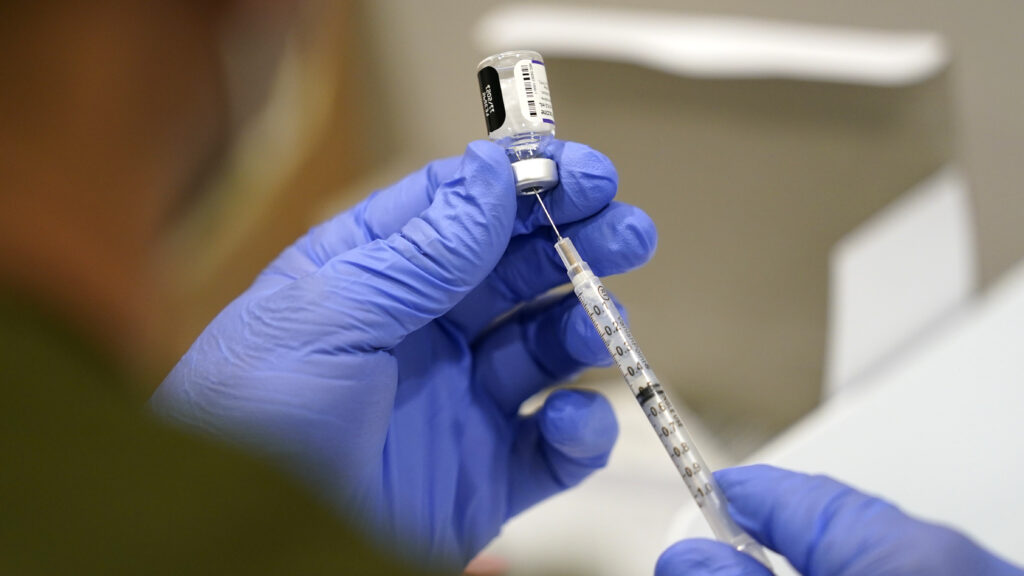New data released Thursday by the Centers for Disease Control and Prevention suggest that the most recent Covid-19 booster offers about 54% percent protection against infection with the virus.
A study published in the CDC’s online journal Morbidity and Mortality Weekly Report showed that the updated vaccine was essentially equally effective at protecting against the strain targeted by the vaccine — called XBB.1.5 — and the JN.1 subvariant, which emerged after the vaccine was made. JN.1 is currently the dominant virus circulating in the United States.
advertisement
Ruth Link-Gelles, an author of the study, said it shows that the latest Covid shot offers significant protection to recipients.
“We know that Covid is continuing to cause thousands of hospitalizations and hundreds of deaths in this country each week,” Link-Gelles, the vaccine effectiveness program lead in the CDC’s National Center for Immunization and Respiratory Diseases, told STAT. “And 50% added protection against Covid-19 is really going to be a meaningful increase in protection, especially for those at highest risk.”
Arnold Monto, a veteran vaccine effectiveness researcher at the University of Michigan, said the findings are what are expected at this point for Covid vaccine boosters.
advertisement
“We’re moving into the era of 50%, 60% percent efficacy. Reminds you of flu [vaccine], doesn’t it?” Monto said.
Link-Gelles agreed with the analogy, noting that in a good year, influenza vaccines offer protection in this range. “So this is kind of exactly where we would expect it to be for a vaccine for a respiratory virus in a population that has some underlying immunity to that virus.”
The study used what is called a test-negative design, looking at 9,222 people with Covid-like symptoms who were tested for the virus. Of those, nearly 3,300 tested positive for Covid and the results were calculated based on a comparison of those who had received the booster versus those who had not.
The vaccine effectiveness was 58% among people who were tested between seven and 59 days after having received a shot, and 49% among those who were tested 60 to 119 days after receipt of the vaccine. The differences were not statistically significant, but the article suggested that given what has been seen previously with Covid vaccination, a reduction in protection is expected over time.
“Because consistent patterns of waning VE” — vaccine effectiveness — “were observed after original monovalent and bivalent Covid-19 vaccination, waning of VE is expected with more time since updated vaccination, especially against less severe outcomes such as symptomatic infection,” the article said.
Though Covid transmission has begun to subside somewhat in the country, Link-Gelles said people who have not yet received the latest version of the vaccine should still do so. “Especially for our highest-risk individuals — people who are pregnant, people who have high-risk conditions — it’s really important to go out if you have not already and get that vaccine this year.”

